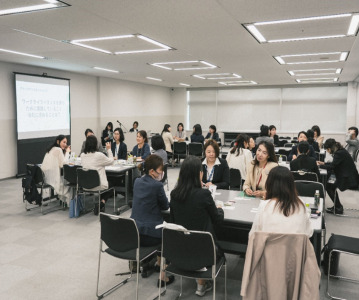Turkish pharma grows by 15.6%, as CPHI Istanbul shares MENA trends and challenges for 2016

Next 5 years will see more outsourcing, vaccine, biotech development and harmonisation in MENA region.
Key growth drivers for the MENA region were forecasted at CPHI Istanbul (1-3 June 2016), with outsourcing, vaccine development and biotechnology emerging as major trends. Experts and C-level executives debated the region’s major opportunities and challenges during the event. At the ‘C Suite Meet Up’ representatives from BI, Daiichi Sankyo, and industry bodies debated the overall picture of the pharma economy.
CPHI Istanbul, which attracted over 4465 leading executives, brought together hosted buyers from countries such as Jordan, Iran, Lebanon, India, Azerbaijan, Uzbekistan and Georgia, along with Turkish pharma companies for commercial discussions, knowledge sharing and analysis. And, over the next 5 years, experts forecast that regional outsourcing will continue to accelerate as governments seek to have more medicine produced locally.
Haluk Balcı, Chief Operating Officer in Turkey in UBM EMEA (Istanbul), commenting on a CPHI Turkey pharma report released at the event, which showed the Turkish pharma economy having grown by 15.6% in the last year to reach 15.9 billion lira, added: “The biggest development in 2016 for the pharma industry is the initiative commenced by the government to reduce imports and increase local production in the pharma industry…. Certainly the developments in localization will set the course of the Turkish pharma industry in the years to come.”
Overall, third-party manufacturing is forecasted to expand in the MENA region as many companies do not want to have established assets everywhere, so decreasing the burden of headcount and direct exposure is important, especially if demand and volumes are not reaching the critical mass to have owned assets. As a result, third-party manufacturing is the preferred option for multinationals and SMEs looking to enter the market.
Moreover, as the emerging CMOs become established and more confident, investments across advanced technologies and biotechnology will increase. Ultimately, the next 5 years should also bring increased regional harmonisation of regulatory standards and help nurture a regional exports market.
Recent trends in standards have seen an increasingly number of manufacturers adopt cGMP, OPEX and Lean strategies, with the main manufacturing bases located in Turkey, Saudi Arabia, Egypt, Algeria and Iran.
Nevertheless, experts warned that for the region to reach its full potential, a number of changes and challenges needed to be overcome. Notably, whilst manufacturing standards are now reaching cGMP, they are often not yet ready for EU or FDA approval. In addition, the view is that some of the newer technologies are not available regionally, with a knock-on effect of reducing local sector experience.
However, with increased investment and government support, companies are now addressing existing gaps in their manufacturing and infrastructure.
"Turkey is reinforcing its regional leader role, owing to its logistic and economic characteristics in the area. We believe that our country has the potential to become a regional base for the pharma industry. In fact today, we see that our country is a centre of attraction in this sense. However, there are a number of steps needed to realise this…. Supporting local production and R&D investments and stimulating export are very important for achieving the regions potential" said Philipp Haas, Chairman of Board of Directors and CEO of DEVA.
Big Pharma representatives acknowledged that there is strong basic infrastructure and knowledge for the manufacture of solid and liquid medicines in MENA. However, they tempered that by adding that manufacturing cost per unit is still high due to not reaching a critical mass of production, outside of the generic companies.
This is now predicted to change as local and regional demand for medicines is increasing, as are regional healthcare budgets. As a result, with the economies’ gentrifying, consumer products will grow and antibiotics, cardiovascular and GI generics will remain the biggest products classes.”
Hande Yılmaz, Marketing Manager, at CPHI Istanbul, added: “This year we have seen a notable increase in thought leaders and international companies attending at CPHI Istanbul. What is clear, is that if we can bring these regional players together, to debate the current challenges and meet new potential partners, we will see strong growth across the manufacturing base in Turkey and the wider MENA region.”
Related News
-
News Women in Pharma: Career Design for Women
Our monthly Women in Pharma series highlights the influential lives and works of impactful women working across the pharmaceutical industry, and how the industry can work towards making the healthcare industry and workplace more equitable and inclusive... -
News Pfizer may shift production back to US under Trump pharma tariffs
At the 45th TD Cowen annual healthcare conference in Boston, USA, Pfizer CEO Albert Bourla outlined the potential for Pfizer to shift its overseas drug manufacturing back to the US as pharmaceutical industry players weigh their options against Presiden... -
News Women in Pharma: Connecting accessible pharma packaging to patients – a Pharmapack Special
Throughout our Women in Pharma series, we aim to highlight how CPHI events encourage discussions around diversity, equity, and inclusion initiatives in the pharmaceutical industry. -
News CPHI Podcast Series: Packaging expert perspectives at Pharmapack 2025
This month's podcast episode sounds a little different, covering the latest event in Paris – Pharmapack 2025. Digital Editor Lucy Chard speaks to several experts direct from the floor of the show, bringing you right in on the action.&nbs... -
News Closing 2024 with Editors' picks of top articles from the past year
Coming to the end of 2024 and it’s certainly been a busy year, for CPHI and for the rest of the pharmaceutical and healthcare industry. Topics of conversation throughout the last 12 months have been varied, touching on the technical, to the polit... -
News SCHOTT Pharma’s sustainable journey with CPHI
Sustainability is of paramount importance in the pharmaceutical industry. See how a recent partnership between CPHI and SCHOTT Pharma has helped to highlight and accelerate their sustainability journey to reach global goals. -
News CPHI Podcast Series: Investing in a vision for the future of life sciences
In this episode Lucy Chard is joined by Rajiv Khatau to discuss the importance of looking into new therapeutic areas and some of the more niche areas of pharmaceuticals, and investing in the future of the industry. -
News Lessons from CPHI Milan 2024: Sunny Intervals for Pharma Manufacturing?
As the 2024 CPHI conference wrapped up in Milan, we caught up with L.E.K. Consulting – a global strategy consulting firm with deep expertise in pharma manufacturing – to discuss evolving market perspectives and business outlook.
Recently Visited
Position your company at the heart of the global Pharma industry with a CPHI Online membership
-
Your products and solutions visible to thousands of visitors within the largest Pharma marketplace
-
Generate high-quality, engaged leads for your business, all year round
-
Promote your business as the industry’s thought-leader by hosting your reports, brochures and videos within your profile
-
Your company’s profile boosted at all participating CPHI events
-
An easy-to-use platform with a detailed dashboard showing your leads and performance







